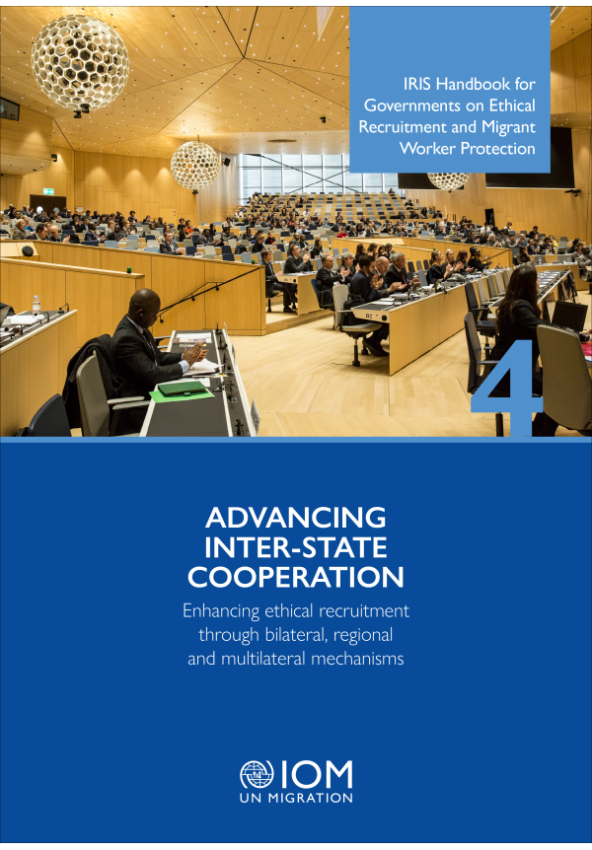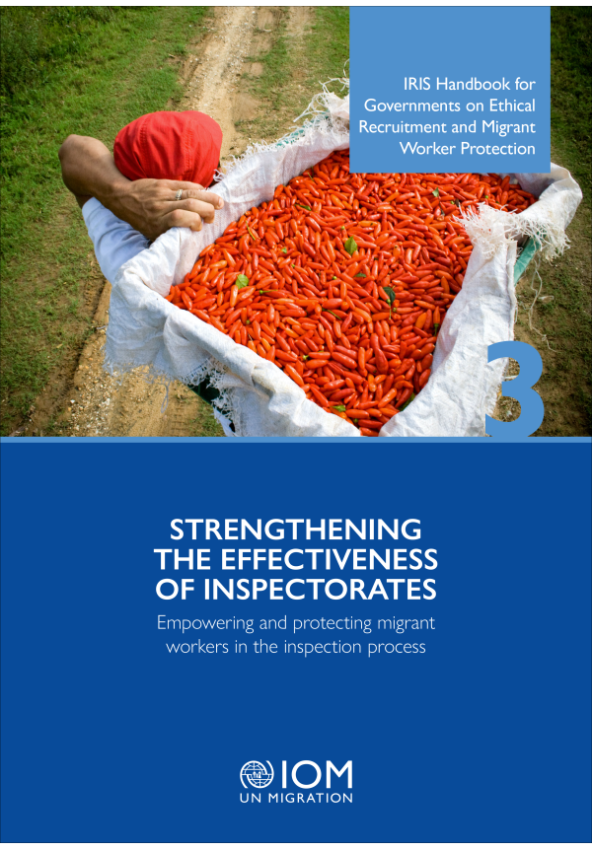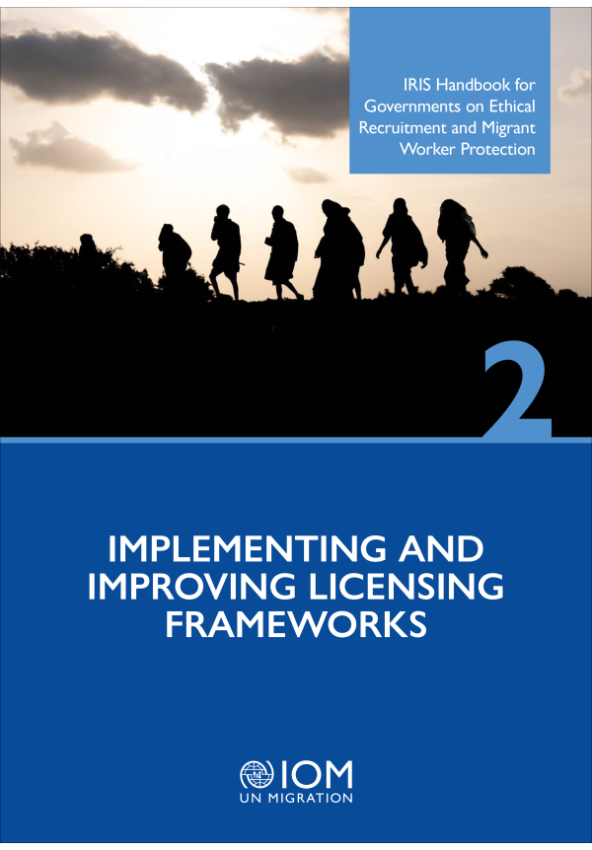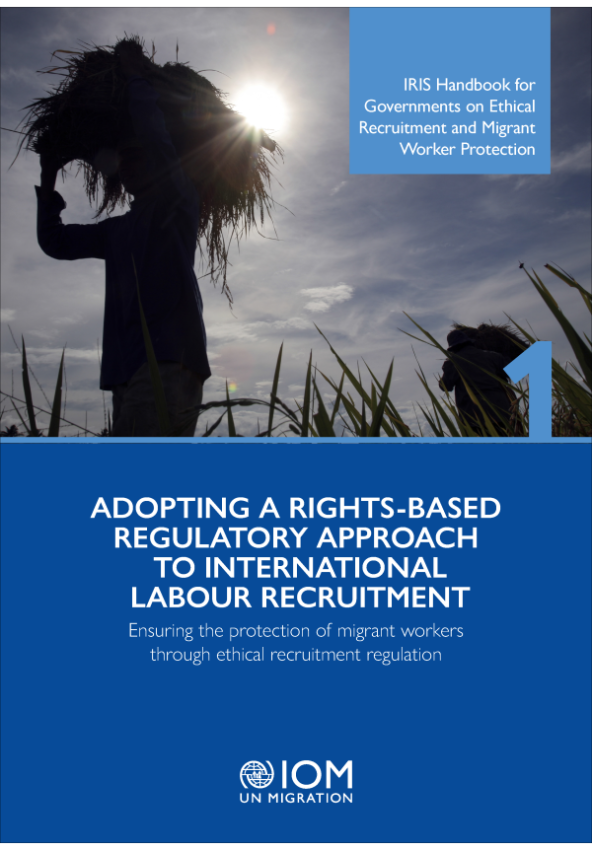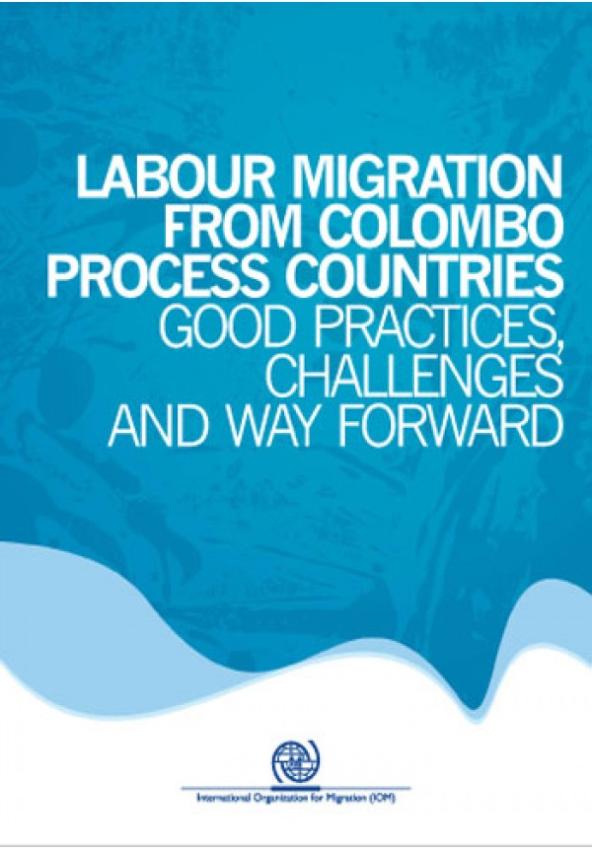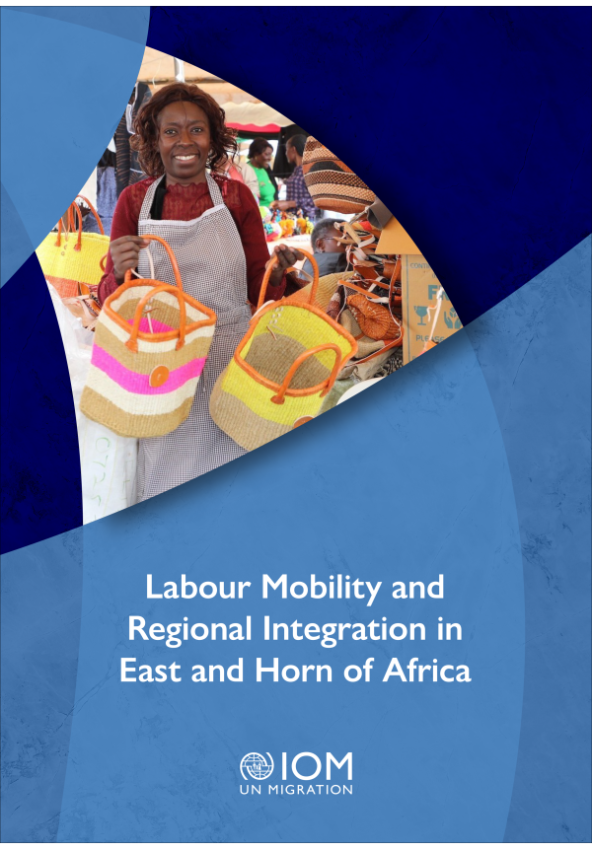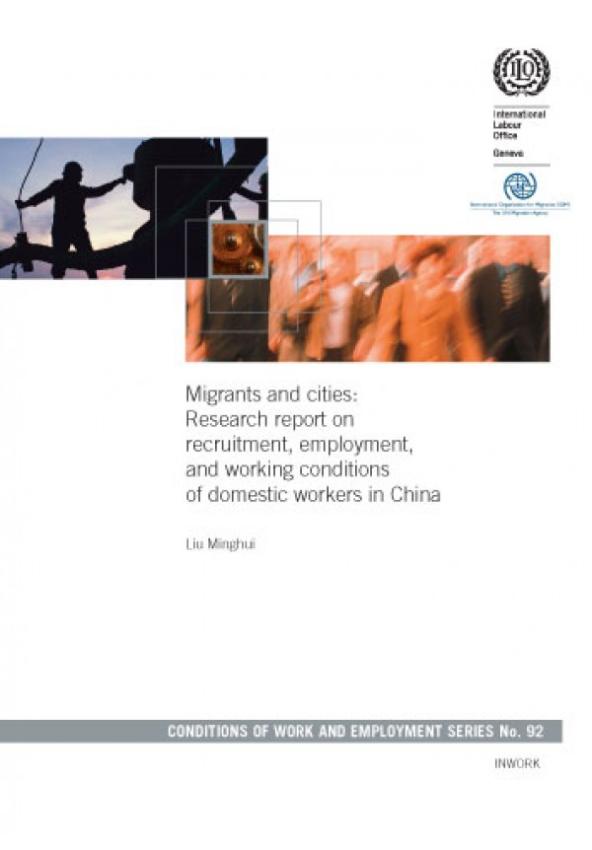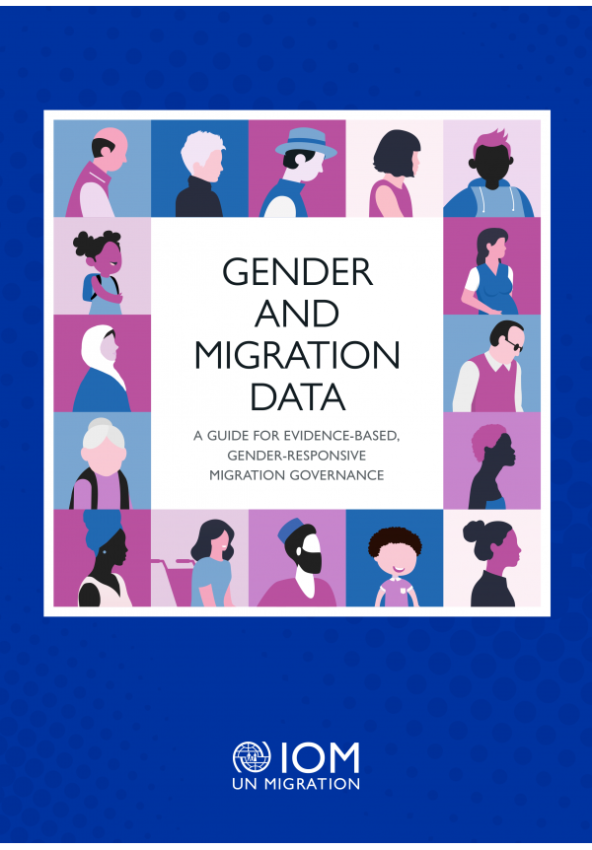ITC-ILO Online Course: Trade Union Manual to Promote Migrant Workers’ Rights and Foster Fair Labour Migration Governance
Introduction to the course
International migration has been on the rise within Africa. In 2019, there were 26.3 million international migrants in Africa - an increase of 17.2 million since 2010. Movement across national borders in search of decent work is one of the key drivers of international migration. Throughout the migration and recruitment process, migrant workers are exposed to undue hardships and abuses in the form of low wages, poor working and living conditions, limited access to social protection, denial of freedom of association and workers’ rights, discrimination as well as social exclusion. Migrant workers’ contributions to the economies of their host and origin countries many times remains unaccounted for – yet migrant workers generate tremendous benefits to both.
In this context, there is a need therefore for a comprehensive and balanced approach to labour migration governance. Well-governed labour migration can contribute to sustainable development for countries of origin, transit and destination, and can provide benefits and opportunities for migrant workers and their families. In this regard, the ILO in collaboration with the Joint Labour Migration Programme (JLMP) and the African Union (AU), developed the Trade Union Manual to promote migrant workers’ rights and foster fair labour migration governance in Africa intended to achieve this objective. The self-guided toolkit complements the ILO training programmes and capacity building activities for Trade Unions aiming at strengthening their role in promoting a rights-based approach to labour migration.
Who attends this course?
The course is designed for officials, policy-makers and practitioners of public institutions and ministries dealing with migration, trafficking and/or forced labour; representatives of employers' and workers’ organizations; representatives of public and private employment agencies; staff of NGOs and civil society organizations; experts from international agencies and other key actors concerned with these issues.
Objectives of the toolkit
Participants will learn about:
- Regional policy, legal frameworks and programmes on labour migration
governance in Africa - International instruments and international labour standards relevant to migrant workers
- The importance of social dialogue in labour migration governance
- Trade union initiatives to promote fair recruitment, and gender-responsive policy implementation
- The role of trade unions in Africa and abroad and recommendations in terms of providing support to migrant workers
- Trade union international good practices
Methodology and certification
The course consists of a number of online modules offered via the ITCILO e-Campus online platform-
This course provides a flexible learning journey as it is completely asynchronous, composed of several self-guided modules.
At the end of course and after successfully completing the final quiz, participants will be granted a certificate of participation.
Structure
The toolkit is composed of 14 training modules, each module has examples of international good practices and highlights the role that workers’ organizations play in each thematic area.
Download the PDF version of Trade Union Manual to Promote Migrant Workers' Rights and Foster Fair Labour Migration Governance
Module 1.
ILO’s Mandate, AU on Labour Migration, Tripartism and Social Dialogue, Data and Trade Union Networks in Africa on Labour Migration
Module 2.
Global Policy Frameworks guiding labour migration governance in Africa
Module 3.
Global Instruments on the protection of migrant workers (UN and ILO Instruments)
Module 4.
Regional policy, legal frameworks and programmes on labour migration governance in Africa
Module 5
Gender equality and women’s empowerment in labour migration governance
Module 6.
Women migrant domestic workers’ particular challenges in working in private households. The need for targeted TU actions
Module 7.
Enhancing fair recruitment practices and regulations
Module 8
Labour exploitation and abuse of migrant workers
Module 9
Skills partnerships, migrant workers’ skills development, portability and recognition, certifications of skills and qualifications
Module 10.
Organizing migrant workers: Freedom of Association and Collective Bargaining, key obstacles and good practices
Module 11.
Promoting social protection of migrant workers
Module 12.
Working and living conditions of migrant workers particularly working time, wages, occupational safety and health, violence and harassment, HIV/AIDS
Module 13.
Advocating for equality of treatment and opportunities, and contributing to labour market integration and combating discrimination in diverse multi-ethnic workplaces and multilingual contexts
Module 14.
Impact of COVID-19 on labour migration
Start the course here.
Type of document :
Country/Region :
Year of publication :
Theme : ,
Trade Unions Manual to Promote Migrant Workers’ Rights and Foster Fair Labour Migration Governance in Africa
International migration has been on the rise within Africa. In 2019, there were 26.3 million international migrants in Africa - an increase of 17.2 million since 2010. Movement across national borders in search of decent work is one of the key drivers of international migration. Throughout the migration and recruitment process, migrant workers are exposed to undue hardships and abuses in the form of low wages, poor working and living conditions, limited access to social protection, denial of freedom of association and workers’ rights, discrimination as well as social exclusion. Migrant workers’ contributions to the economies of their host and origin countries many times remains unaccounted for – yet migrant workers generate tremendous benefits to both.
In this context, there is a need therefore for a comprehensive and balanced approach to labour migration governance. Well-governed labour migration can contribute to sustainable development for countries of origin, transit and destination, and can provide benefits and opportunities for migrant workers and their families. In this regard, the ILO in collaboration with the Joint Labour Migration Programme (JLMP) and the African Union (AU), developed the Trade Union Manual to promote migrant workers’ rights and foster fair labour migration governance in Africa intended to achieve this objective.
The toolkit is composed of 14 training modules, each module has examples of international good practices and highlights the role that workers’ organizations play in each thematic area.
Type of document :
Country/Region :
Year of publication :
Theme : ,
IRIS Handbook for Governments on Ethical Recruitment and Migrant Worker Protection: Chapter 4 – Advancing inter-State cooperation
This resource is the fourth chapter of the IRIS Handbook for Governments on Ethical Recruitment and Migrant Worker Protection. With direct relevance to inter-State labour migration governance mechanisms and processes, it provides governments with practical guidance on how to integrate, mainstream and prioritize ethical recruitment in these cooperative activities.
The chapter covers a broad range of relevant topics including: the value and benefits of inter-State cooperation in international labour recruitment governance; the landscape of relevant labour migration mechanisms and processes (including labour migration agreements and inter-State consultation mechanisms); and specific guidance and examples of how to advance and prioritize ethical recruitment in these endeavours. Guidance is intended for government officials in their capacities as negotiators, regulators, inspectors, labour attachés and consular officials at different levels of administration (national, subnational) and across relevant portfolios (labour and employment, migration, foreign affairs, etc.).
The IRIS Handbook is IOM’s flagship global guidance tool for governments on ethical recruitment and migrant worker protection. It builds directly on the Montreal Recommendations on Recruitment: A Road Map towards Better Regulation with more detailed measures for consideration, and profiles relevant concrete actions that governments around the world have taken.
Type of document :
Country/Region :
Year of publication :
Theme : , , ,
IRIS Handbook for Governments on Ethical Recruitment and Migrant Worker Protection: Chapter 3 – Strengthening the effectiveness of inspectorates
This resource is the third chapter of the IRIS Handbook for Governments on Ethical Recruitment and Migrant Worker Protection. It provides governments with practical guidance on how to strengthen the effectiveness of inspectorates to ensure that migrant workers are empowered and protected during the inspection process.
The chapter covers a broad range of relevant topics including setting up an effective inspectorate in law and practice (legal framework, monitoring and enforcement strategy, resources, process and decision-making, collaborative approaches) and migrant-sensitive inspection approaches and methods (facilitative conditions for migrant workers, inspection modalities, interview techniques). Guidance is intended for government officials in their capacities as inspectors at various levels of administration (national, subnational) and across relevant portfolios (labour, migration, consumer protection, etc.). It can be applied in countries of origin, transit and destination.
The IRIS Handbook is IOM’s flagship global guidance tool for governments on ethical recruitment and migrant worker protection. It builds directly on the Montreal Recommendations on Recruitment: A Road Map towards Better Regulation with more detailed measures for consideration, and profiles relevant concrete actions that governments around the world have taken.
Type of document :
Country/Region :
Year of publication :
Theme : , , ,
IRIS Handbook for Governments on Ethical Recruitment and Migrant Worker Protection: Chapter 2 – Implementing and improving licensing frameworks
This resource is the second chapter of the IRIS Handbook for Governments on Ethical Recruitment and Migrant Worker Protection. It provides governments with practical guidance on how to implement and improve the administration of private international labour recruiter frameworks, with an emphasis on ensuring recruiters are competent in and accountable to ethical recruitment principles.
The chapter covers a broad range of relevant topics including: knowledge of ethical recruitment standards (information and educational options); licence application and assessment (screening process, eligibility and requirements); licence features and conditions; and accountability measures (oversight and transparency). Guidance is intended for government officials in their capacities as regulators and inspectorates of private labour recruiters at various levels of administration (national, subnational) and across relevant portfolios (labour, immigration, consumer protection, etc.). It can be applied in countries of origin, transit and destination.
The IRIS Handbook is IOM’s flagship global guidance tool for governments on ethical recruitment and migrant worker protection. It builds directly on the Montreal Recommendations on Recruitment: A Road Map towards Better Regulation with more detailed measures for consideration, and profiles relevant concrete actions that governments around the world have taken.
Type of document :
Country/Region :
Year of publication :
Theme : , , , , ,
IRIS Handbook for Governments on Ethical Recruitment and Migrant Worker Protection: Chapter 1 - Adopting a rights-based regulatory approach to international labour recruitment
This resource is the first chapter of the IRIS Handbook for Governments on Ethical Recruitment and Migrant Worker Protection. It provides governments with practical guidance on how to adopt and strengthen a rights-based framework to regulate private international labour recruiters and uphold migrant worker protection. The chapter covers a comprehensive range of themes including: regulatory measures (key definitions and terms, legal status of labour recruiters, ethical rules of conduct); enforcement and oversight (mandating authorities and sanctions); and access to justice (complaint mechanisms and complementary measures). Guidance is intended for government officials in their capacities as policymakers and regulators at various levels of administration (national, subnational) and across relevant portfolios (immigration, labour, foreign affairs, etc.). It can be applied in countries of origin, transit and destination.
The IRIS Handbook is IOM’s flagship global guidance tool for governments on ethical recruitment and migrant worker protection. It builds directly on the Montreal Recommendations on Recruitment: A Road Map towards Better Regulation with more detailed measures for consideration, and profiles relevant concrete actions that governments around the world have taken.
Type of document :
Country/Region :
Year of publication :
Theme : , , , ,
Labour migration from Colombo Process countries Good practices, challenges and ways forward
Labour Migration from Colombo Process Countries: Good Practices, Challenges and Way Forward is the official background paper prepared by the International Organization for Migration (IOM) to inform the Fourth Colombo Process Ministerial Meeting held in Dhaka, Bangladesh in 2011. The report takes stock of current labour migration trends in the region, offers an analysis of good practices and identifies the challenges Colombo Process (CP) Member Countries face and their policy options in the immediate and long-term.
Since 2005, CP Member Countries have taken concrete, pro-active steps to manage labour migration through amending existing regulations or adopting new legislation, creating new government structures dedicated to managing labour outflow, and signing bilateral agreements (BAs) and memoranda of understanding (MOUs) with key destination countries. CP Member Countries have also launched innovative programmes and activities at different levels of government aimed at protecting labour migrants at home and abroad.
Despite success in key areas, however, difficult challenges remain, especially in implementation. There is often a gap between the aims of programmes as laid out on paper and how they are ultimately applied on the ground particularly on four key areas: disseminating of information, managing of the recruitment process, providing welfare support to migrants at both ends of the migration cycle and maximizing the benefits of labour migration. Success in any of these four areas requires serious investments in capacity building centered on a three-pronged strategy aimed at generating critical information, knowledge and policy-relevant research, formalizing practical dialogues and forging meaningful partnerships.
Type of document :
Country/Region :
Year of publication :
Theme : ,
Labour Mobility and Regional Integration in East and Horn of Africa
This report analyses the role of the East African Community (EAC) Protocol on the Establishment of the East African Community Common Market (CMP) and the Intergovernmental Authority on Development (IGAD) Protocol on Free Movement of Persons in the IGAD Region (FMP) in facilitating labour mobility in the East and Horn of Africa (EHoA) region. The report provides an in-depth analysis of the legal and policy context of protecting the rights of migrant workers in the EHoA region, focusing on the EAC CMP and IGAD FMP and national labour provisions of the case study countries, namely Kenya, Rwanda and Uganda. It also discusses the opportunities and challenges of overlapping memberships for the implementation of the IGAD FMP and acceleration of the EAC CMP in relation to labour mobility and migrant workers’ rights based on the experiences of Kenya and Uganda. It also explores the impact of overlapping memberships and COVID-19 on labour mobility while taking into account gender considerations.
Type of document :
Country/Region :
Year of publication :
Theme : , ,
Migrant and cities: Research report on recruitment, employment, and working conditions of domestic workers in China
This study on domestic workers in China was conducted under the EU–China Dialogue on Migration and Mobility Support Project, a collaboration between the International Organization for Migration and the International Labour Organization, funded by the European Union. It examines the current situation of domestic workers in China with a focus on the case study of Beijing, including domestic workers’ recruitment, employment, working conditions, social security, accessibility to legal protection, and complaint mechanisms. The study identifies the gaps in the national policies and practices concerning domestic workers in China in light of international standards and good practices.
In addition, the study provides relevant policy recommendations to narrow the gaps with regard to international instruments and to promote the legitimate rights of domestic workers in China. The study is not only an illustration of the socioeconomic impact of migration on development – and urbanization in particular. It is an expression of hope that domestic work may transition from the informal to the formal economy and become a fully-fledged urban labour market in its own right in China’s near future.
Type of document :
Country/Region : ,
Year of publication :
Theme : ,
Gender and Migration Data: A guide for evidence-based, gender-responsive migration governance
The purpose of this note is to provide concrete guidance to policymakers, national statistical offices (NSOs) and practitioners on why it is important to promote gender-responsiveness when collecting, producing, using, analysing and disseminating migration data for policy – and how. Gender and diversity analysis is one tool that policymakers, NSOs and practitioners can use to identify needs and address policy shortcomings as part of a gender analysis framework.
This guidance note aims to address the migration data gaps in a manner relevant to all stakeholders, and promotes a whole-of-society approach. It is also meant to help operationalize IOM’s Migration Data Strategy and includes recommendations on enhancing gender indicators and gender-based methods in data production, protection, dissemination and use. The note provides succinct information on the extent to which gender is captured through macrolevel global data sets, along with a discussion of key issues relevant to gender and migration data.
The Guide is organized into three main sections: Section 1 presents the background on the rationale and the main goals of the Guide. Section 2 provides an overview of the international context and the state of the art in gender and migration data, and Section 3 offers guidelines for action at the national (and local) level to strengthen migration data work from a gender perspective.
Type of document :
Country/Region :
Year of publication :
Theme : , ,
Subscribe to the Fair Recruitment Initiative Newsletter
Sign up to receive news delivered to your inbox.



